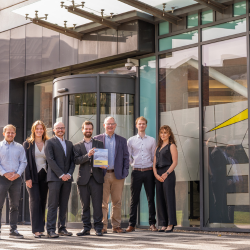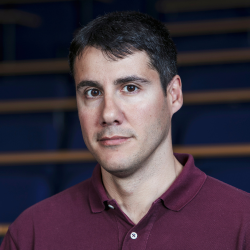-
Study
-
Quick Links
- Open Days & Events
- Real-World Learning
- Unlock Your Potential
- Tuition Fees, Funding & Scholarships
- Real World Learning
-
Undergraduate
- Application Guides
- UCAS Exhibitions
- Extended Degrees
- School & College Outreach
- Information for Parents
-
Postgraduate
- Application Guide
- Postgraduate Research Degrees
- Flexible Learning
- Change Direction
- Register your Interest
-
Student Life
- Students' Union
- The Hub - Student Blog
- Accommodation
- Northumbria Sport
- Support for Students
-
Learning Experience
- Real-World Learning
- Research-enriched learning
- Graduate Futures
- The Business Clinic
- Study Abroad
-
-
International
International
Northumbria’s global footprint touches every continent across the world, through our global partnerships across 17 institutions in 10 countries, to our 277,000 strong alumni community and 150 recruitment partners – we prepare our students for the challenges of tomorrow. Discover more about how to join Northumbria’s global family or our partnerships.
View our Global Footprint-
Quick Links
- Course Search
- Undergraduate Study
- Postgraduate Study
- Information for Parents
- London Campus
- Northumbria Pathway
- Cost of Living
- Sign up for Information
-
International Students
- Information for International Students
- Northumbria and your Country
- International Events
- Application Guide
- Entry Requirements and Education Country Agents
- Global Offices and Regional Teams
- English Requirements
- English Language Centre
- International student support
- Cost of Living
-
International Fees and Funding
- International Undergraduate Fees
- International Undergraduate Funding
- International Masters Fees
- International Masters Funding
- International Postgraduate Research Fees
- International Postgraduate Research Funding
- Useful Financial Information
-
International Partners
- Agent and Representatives Network
- Global Partnerships
- Global Community
-
International Mobility
- Study Abroad
- Information for Incoming Exchange Students
-
-
Business
Business
The world is changing faster than ever before. The future is there to be won by organisations who find ways to turn today's possibilities into tomorrows competitive edge. In a connected world, collaboration can be the key to success.
More on our Business Services-
Business Quick Links
- Contact Us
- Business Events
- Research and Consultancy
- Education and Training
- Workforce Development Courses
- Join our mailing list
-
Education and Training
- Higher and Degree Apprenticeships
- Continuing Professional Development
- Apprenticeship Fees & Funding
- Apprenticeship FAQs
- How to Develop an Apprentice
- Apprenticeship Vacancies
- Enquire Now
-
Research and Consultancy
- Space
- Energy
- AI Futures
- CHASE: Centre for Health and Social Equity
- NESST
-
-
Research
Research
Northumbria is a research-rich, business-focused, professional university with a global reputation for academic quality. We conduct ground-breaking research that is responsive to the science & technology, health & well being, economic and social and arts & cultural needs for the communities
Discover more about our Research-
Quick Links
- Research Peaks of Excellence
- Academic Departments
- Research Staff
- Postgraduate Research Studentships
- Research Events
-
Research at Northumbria
- Interdisciplinary Research Themes
- Research Impact
- REF
- Partners and Collaborators
-
Support for Researchers
- Research and Innovation Services Staff
- Researcher Development and Training
- Ethics, Integrity, and Trusted Research
- University Library
- Vice Chancellors Fellows
-
Research Degrees
- Postgraduate Research Overview
- Doctoral Training Partnerships and Centres
- Academic Departments
-
Research Culture
- Research Culture
- Research Culture Action Plan
- Concordats and Commitments
-
-
About Us
-
About Northumbria
- Our Strategy
- Our Staff
- Our Schools
- Place and Partnerships
- Leadership & Governance
- University Services
- Northumbria History
- Contact us
- Online Shop
-
-
Alumni
Alumni
Northumbria University is renowned for the calibre of its business-ready graduates. Our alumni network has over 253,000 graduates based in 178 countries worldwide in a range of sectors, our alumni are making a real impact on the world.
Our Alumni - Work For Us
Convening question:
How can we ensure today’s public services can meet the demands of the future?
Introduction
The Public Policy and Management (PPM) research group equips policymakers and service professionals with the tools and ideas they need meet long-term public service challenges.
We specialise in applied, policy-relevant research undertaken in partnership with organisations across the public, private and third sectors. We work as a hub for North East academics, policymakers and service professionals to mobilise the public sector as a major driver of economic and social advancement.
PPM brings together the work of over 35 NBS academics alongside a roster of visiting professors, fellows and associates. Together, we carry forward Northumbria University’s reputation for excellence in public administration scholarship and policy impact. Our work spans four areas.
Research leadership. Our academic staff publish extensively in top academic journals and hold significant national and international roles in research networks, advisory forums and learned societies.
Policy-relevant teaching and learning. Our developing teaching and executive education portfolio combines cutting-edge ideas in public service reform with innovative, problem-led learning bridging the academic-policy boundary.
Impactful applied research projects. We undertake collaborative research projects funded by a range of UK research councils, civic organisations and governments
Engaged scholarship. We reach beyond the university boundary, convening policymakers, academics and the public in a programme of collaborative events, invited talks and developmental workshops
PPM members take a future-focused approach to public policy issues, cutting across eight overlapping themes:
Complexity and relational public services
Action-oriented approaches to research and knowledge exchange
Policymaking, leadership and regional development
Civic engagement and partnership working
Restorative justice and resistance
Performance, learning, audit and regulation
Digital governance and collaborative platforms
Wellbeing and sustainability-oriented public administration
NBS Research
- People, Work, Organisation (PWO)
- EPIC Research Centre
- Public Policy and Public Management (3PM)
- Professional Learning and Management Education (PLME) Research Group
- Responsible Business
- Decision Making Research Group
- Centre for Digital Supply Chain Excellence (CDSCE)
- Research Impact for Newcastle Business School
Interested in studying at Northumbria? With 31,500 students, Northumbria is one of the largest universities in the country, offering almost 500 courses on either a full-time, part-time or distance learning basis.
We host a number of Open Days throughout the year. Click to find out more about our Open Days and book your place.
Our students learn from the best – inspirational academic staff with a genuine passion for their subject. Our courses are at the forefront of current knowledge and practice and are shaped by world-leading and internationally excellent research.
Latest News and Features

Students gain invaluable work experience
Students from Northumbria University Business Clinic have gained invaluable work experience…

International students at Northumbria embark on FA Cup dream
A team of international college students studying at Northumbria University could soon find…

Students build foundations for Aptus expansion
A North East construction firm is targeting expansion after completing a marketing project…

The AI Education Revolution: Why Good Intentions Aren't Enough
Picture this: You're a teacher trying to navigate the brave new world of AI in education.

The Academy of Social Sciences welcomes Northumbria Professor to its Fellowship
An economics expert from Northumbria University, whose research has highlighted the important…

Jim Jackson Foundation extends its support to Northumbria University Business students
Northumbria University has extended its partnership with the Jim Jackson Educational and Enabling…





